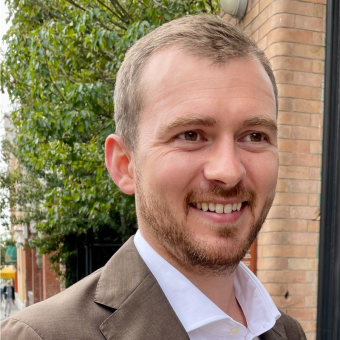Profiles in Power highlights public officials nationwide who are improving their communities through their dedication, enthusiasm, creativity and experience.
This week’s profile is Tyler Svitak, executive director of the Colorado Smart Cities Alliance.
Public career highlights: After graduating from CU Denver with a degree in Environmental Studies, I began working for a U.S. Department of Energy program, called Clean Cities, to improve air quality and mitigate climate change through alternative fuels, like electric vehicles. I then joined the city and county of Denver during the USDOT’s Smart Cities Challenge, a $50 million competition for mid-size cities to use technology to improve the transportation system. I then joined the Colorado DOT on a new program focused on deploying connected and autonomous vehicle technology. Today, I work with almost 40 state and local governments across Colorado to source, test and scale technology solutions to challenges across government, including safety, climate, water, housing and more. It’s been a wild ride!
What I like best about public service: Everything the government does matters to people. Some of the biggest challenges facing everyone’s quality of life are infrastructure-related: transportation, housing, climate and air quality, energy, water, safety. It all matters to people’s everyday lives. I’m working every day to change things that matter with technologies that keep me consistently curious.
The best advice I’ve received: “Do something you care about” and “trust yourself to figure out.” Those are two separate pieces of advice I’ve been given several times throughout my career. They go well together, but they are separately important.
People might be interested to know that: I love to travel for food and culture. It shows me new ways of living, which keeps me curious and always changing. Food unites people, and it teaches you so much about other people.
One thing I wish more people knew about the Colorado Smart Cities Alliance: Working in government innovation means I get to work with any division that wants to be better. Often times innovation focuses on transportation, utilities or public safety, mostly because there are new solutions in that space, but innovation really depends on the personalities involved and less about the scope of the division. It can be human services, parks and rec or public health – it just takes champions willing to overcome barriers to change.




